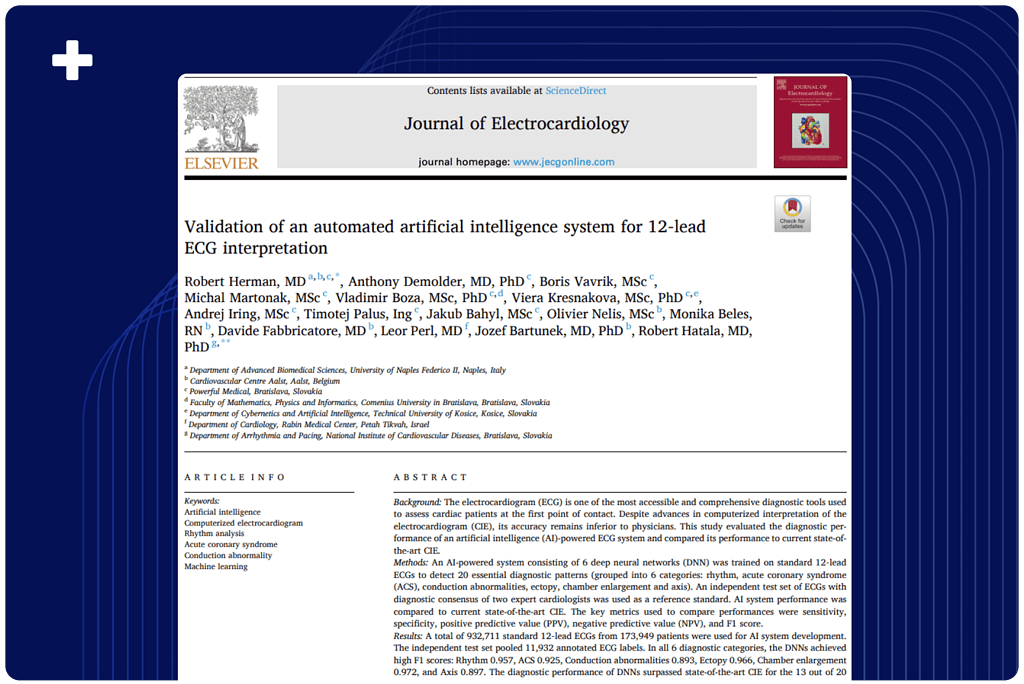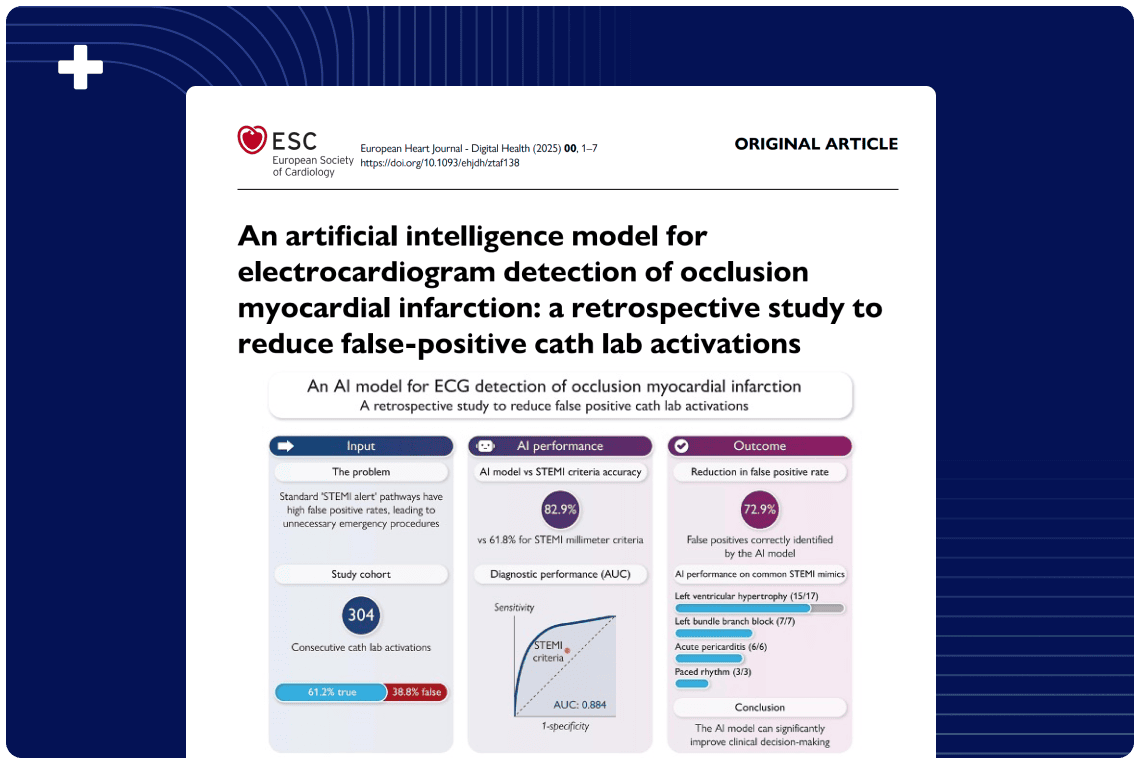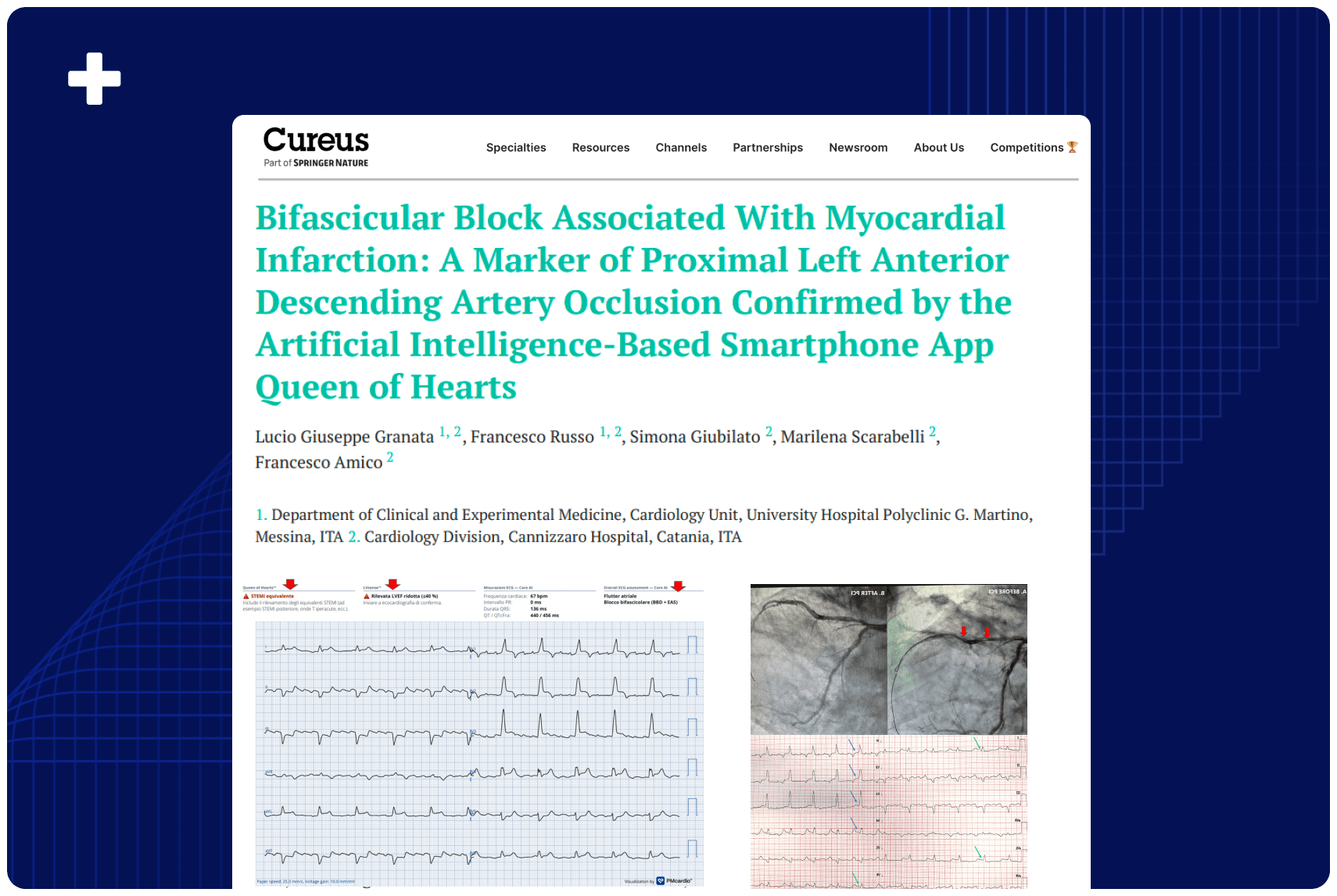Overview:
Trained on over 1 million ECGs, the PMcardio Core AI ECG Model was evaluated across six diagnostic categories, outperforming primary care physicians by up to 73% and matching cardiologists in overall accuracy. Additionally, it demonstrated clear superiority over traditional ECG machine-generated diagnoses, which are limited by rule-based algorithms, restricted pattern recognition, and an inability to incorporate clinical context.
Published In: Journal of Electrocardiology
Presented Date: December 23, 2023
Highlights:
- AI-powered system detects 20 essential diagnostic patterns and standard ECG measurements from 12-lead ECGs.
- AI outperforms state-of-the-art CIE for 13 of 20 evaluated diagnostic patterns and is non-inferior for the remaining.
- AI system has the potential to reduce burden on cardiologists and improve timely and efficient referral.
Background
The electrocardiogram (ECG) is one of the most accessible and comprehensive diagnostic tools used to assess cardiac patients at the first point of contact. Despite advances in computerized interpretation of the electrocardiogram (CIE), its accuracy remains inferior to physicians. This study evaluated the diagnostic performance of an artificial intelligence (AI)-powered ECG system and compared its performance to current state-of-the-art CIE.
Methods
An AI-powered system consisting of 6 deep neural networks (DNN) was trained on standard 12‑lead ECGs to detect 20 essential diagnostic patterns (grouped into 6 categories: rhythm, acute coronary syndrome (ACS), conduction abnormalities, ectopy, chamber enlargement and axis).
An independent test set of ECGs with diagnostic consensus of two expert cardiologists was used as a reference standard. AI system performance was compared to current state-of-the-art CIE. The key metrics used to compare performances were sensitivity, specificity, positive predictive value (PPV), negative predictive value (NPV), and F1 score.
Results
A total of 932,711 standard 12‑lead ECGs from 173,949 patients were used for AI system development. The independent test set pooled 11,932 annotated ECG labels. In all 6 diagnostic categories, the DNNs achieved high F1 scores: Rhythm 0.957, ACS 0.925, Conduction abnormalities 0.893, Ectopy 0.966, Chamber enlargement 0.972, and Axis 0.897. The diagnostic performance of DNNs surpassed state-of-the-art CIE for the 13 out of 20 essential diagnostic patterns and was non-inferior for the remaining individual diagnoses.
Conclusion
Our results demonstrate the AI-powered ECG model’s ability to accurately identify electrocardiographic abnormalities from the 12‑lead ECG, highlighting its potential as a clinical tool for healthcare professionals.
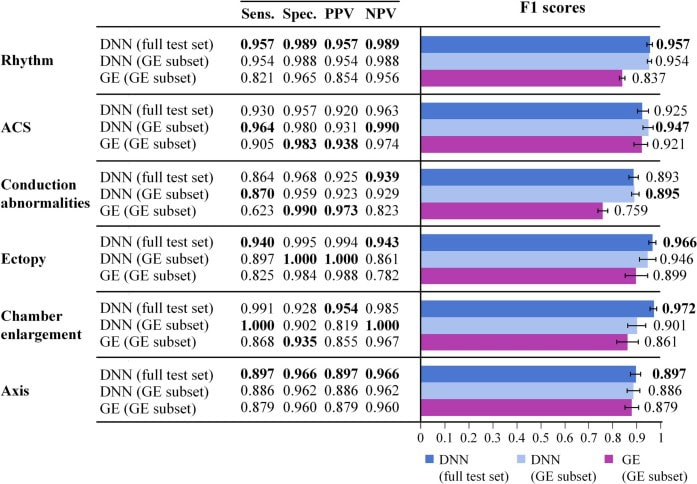
Authors: Robert Herman, MD, Anthony Demolder, MD, PhD, Boris Vavrik, MSc, Michal Martonak, MSc, Viera Kresnakova, MSc, PhD, Andrej Iring, MSc, Timotej Palus, Ing, Jakub Bahyl, MSc, Olivier Nelis, MSc, Monika Beles, RN, Davide Fabbricatore, MD, Leor Perl, MD, Jozef Bartunek, MD, PhD, Robert Hatala, MD, PhD

